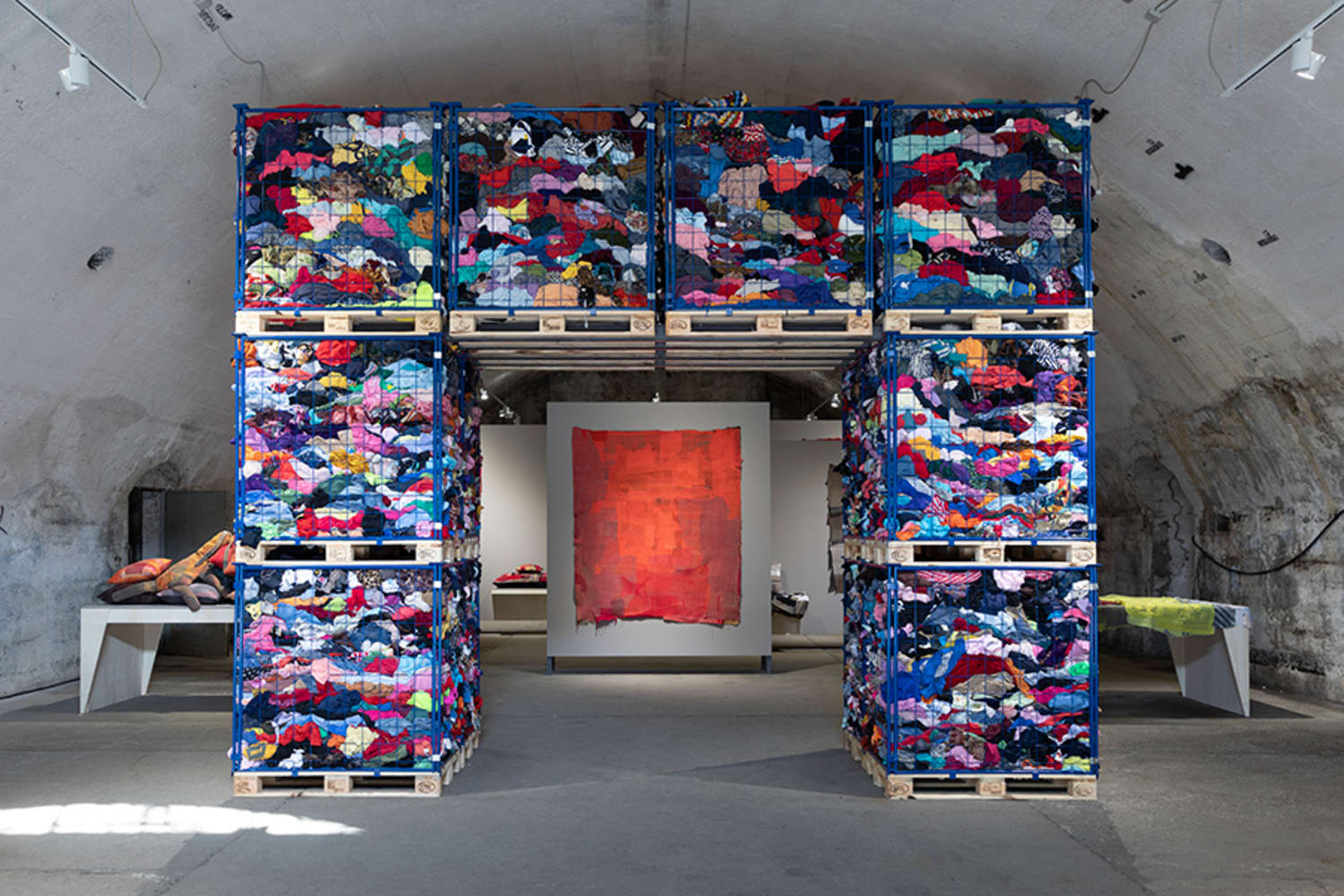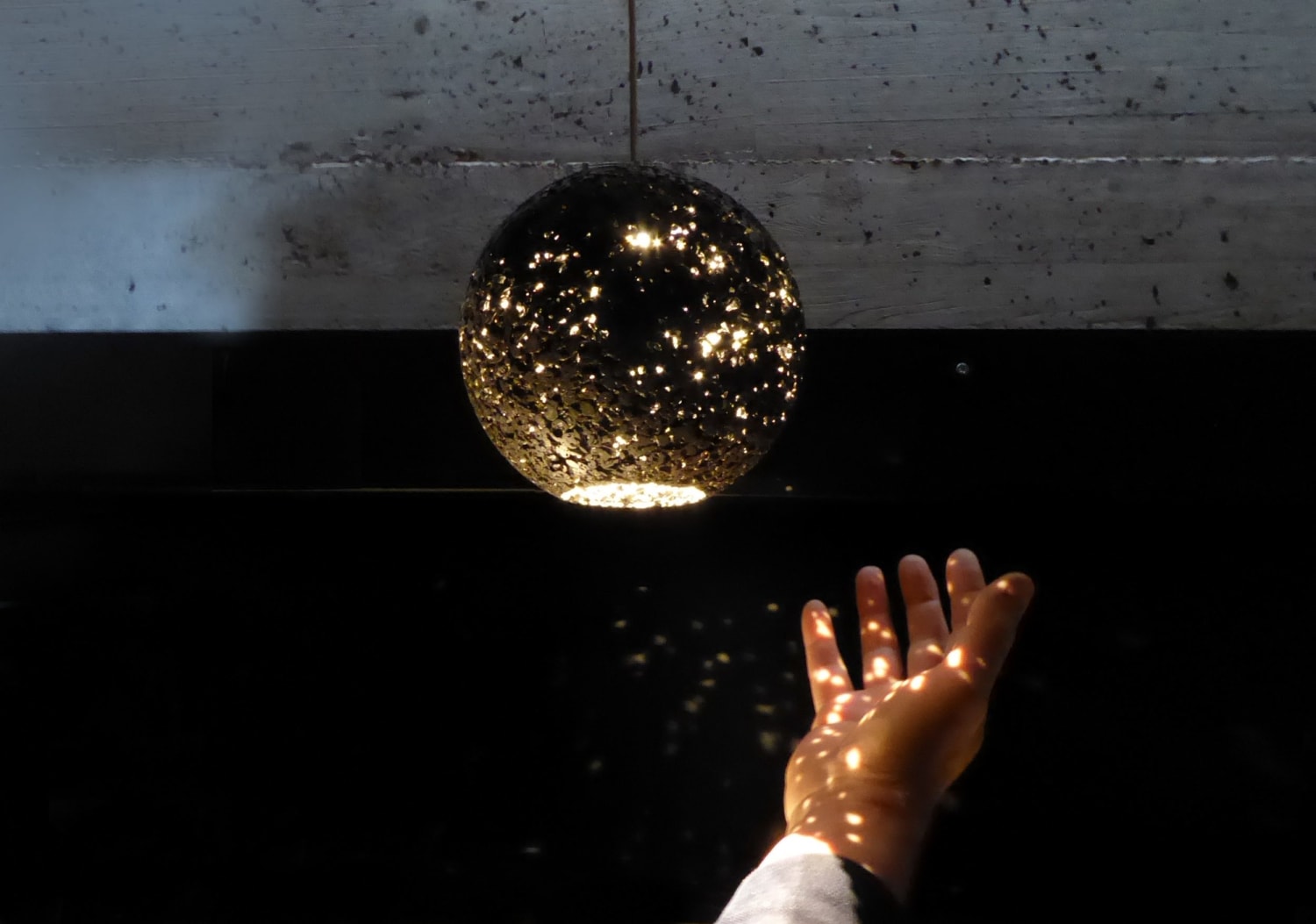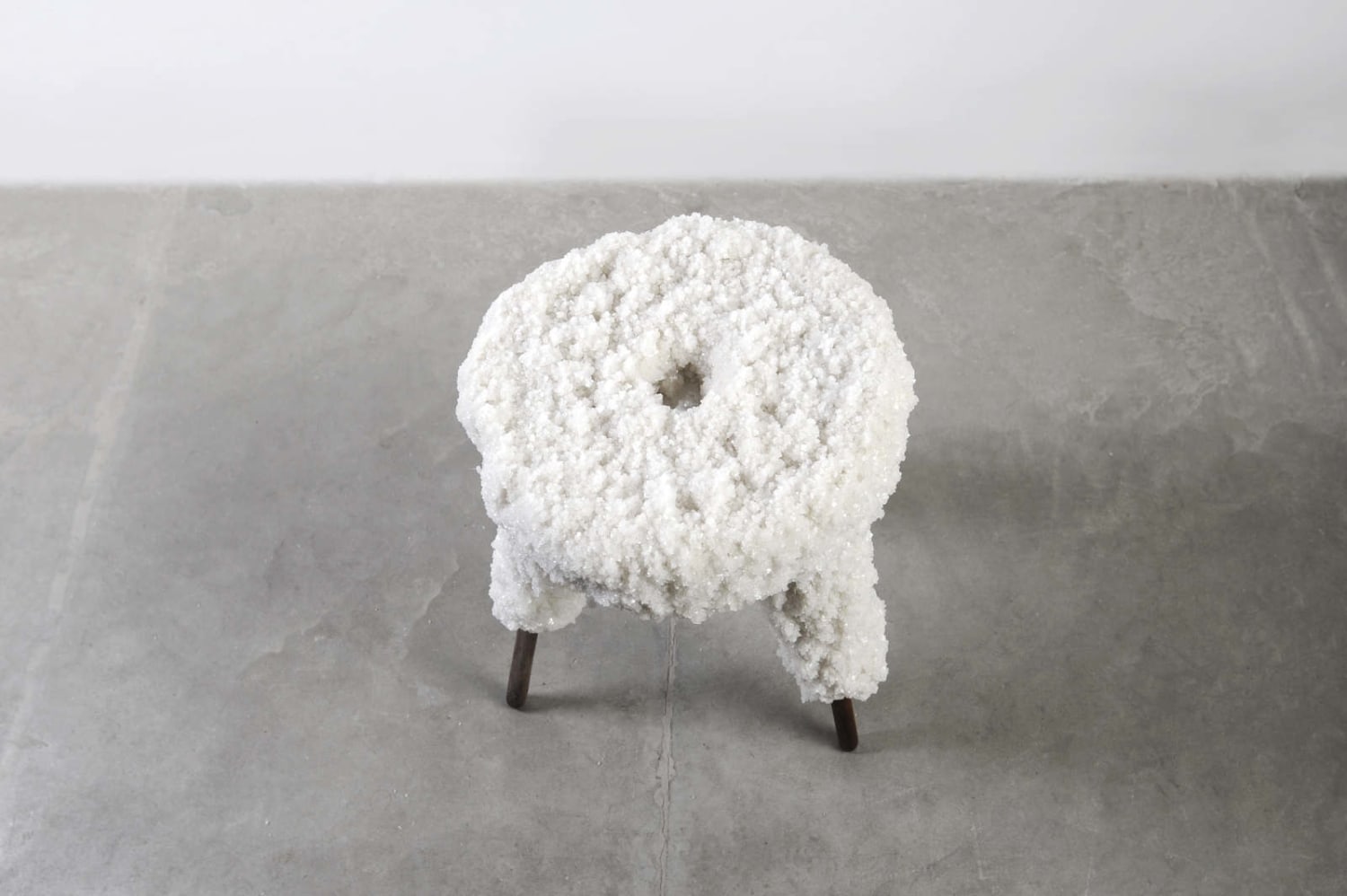American fashion designer Eileen Fisher was at the forefront of the sustainability conversation during Salone del Mobile with the Waste No More exhibition, examining the environmental impact of the textile and fashion industry and promoting a circular economy by repurposing discarded material and old apparel.
The growing concern over material waste's effect on the environment has prompted designers to tackle ethical consumption.

Gallery owner Rossana Orlandi addressed plastic waste, turning the material into design opportunities with the Guiltless Plastic initiative. “Plastic has become a horrible product, something that people hate,” Orlandi tells Dezeen. “But at the same time it’s super-interesting because if you recycle, you can do amazing things with it from industrial pieces to art pieces. There are immense possibilities.” The project launched last week, showcasing imaginative ways to reuse plastic which include Argentine-born Australian designer Alexander Lotersztain’s QTZ recycled plastic chair and Spanish designer Alvaro Catalán de Ocon’s PET Lamps, which use discarded plastic bottles as lampshades. Guiltless Plastic is an ongoing project and Orlandi plans to launch an award for the best use of repurposing plastic later in the year.

Plastic currently has a bad rap, because so little of it is reused. A 2017 study by the University of California has calculated that 8,300 million metric tons of virgin plastics have been produced and approximately 79% of this is waste. Large companies in the UK including Coca-Cola and Procter & Gamble have recently announced circular usage of plastic in the next seven years in a bid to fight plastic pollution.
Designers are also waging war on plastic not by replacing the material but by finding novel ways to reuse it. Recycled plastic specialist Ecopixel, working in partnership with Eco-oh, debuted Trashplast, an innovative new thermoplastic circular material made entirely from household trash. Israeli designer Shahar Livne reuses plastic to create beautiful sculptural objects which looks akin to precious geodes, changing the perception that plastic is a cheap material.

Plastics aside, designers are also experimenting with sustainable and ethical materials. Israeli designer Erez Nevi Pana showcased a set of vegan chairs made from plants, textile scraps and minerals including Dead Sea Salt and Soilid, a dough-like material derived from soil. His mission is to create products that are “free from guilt,” using natural, vegan-friendly resources.

Danish company Really launched Solid Textile Board in 2017 and is back this year with a new collection of furniture, including sound-softening room dividers and wall-mounted shelves. Really uses a unique hard material that is made of upcycled end-of-life fabrics and offcuts.
A 2017 survey by the Sustainable Furnishing Council revealed that 97% of respondents expressed concern over environmental issues and they are willing to pay up to 10% more for eco-friendly home furnishings. Consumers are increasingly aware of sustainable consumption. Designers and brands will need to put sustainability at the forefront of their mission statements to demonstrate innovation and resonate with eco-conscious consumers to build a truly guilt-free future.
Read more on sustainable missions across various sectors, including the first plastic-free supermarket, eco-conscious coffee and circular beauty.
Please provide your contact information to continue.
Related Content

VML Shines at the ANDY Awards

